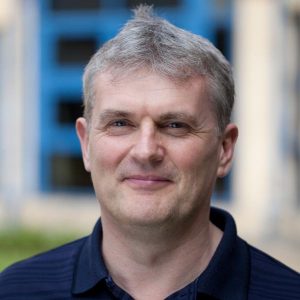Member Spotlight, May 2024
In each issue of Inside ASIS&T, we feature a different member to discuss ASIS&T and the field of information science and technology. Please contact Pamela Yonker if you would like to be featured in Member Spotlight.

Andrew Cox, PhD
Senior Lecturer
School of Information, University of Sheffield
How long have you been an ASIS&T member?
I have been an ASIS&T member for seven years.
Why did you decide to join ASIS&T?
It is so valuable to be connected into the global community of IS researchers and practitioners in ASIS&T. So much interesting research is being done by members; they have so much insightful experience. I wish I had time to attend all the ASIS&T events and webinars!
Do you have any advice for new ASIS&T members?
Get involved in one of the committees or SIGs! Your energy as a volunteer is essential to the health of our professional community. Working closely with others on a project such as running a workshop or webinar creates valuable bonds. It gives you the chance to discover the latest thinking, even before it is published, and to play your part in shaping the debate.
What skills and/or knowledge do you believe have been overemphasized or underemphasized for those in the field of information science?
It would be good to see more critical research that investigates issues from the perspectives of minoritised groups in society and places issues of power centre stage in information science. There is a lot of such work, but we need more. At the same time it would also be great to see even more work that crosses the divide between qualitative and quantitative research. In the digital domain there is huge potential to bring together both forms of investigation. It will be very interesting to see how the proliferating array of AI-based research tools come to be employed in critical research.
What is a project you are working on right now that excites you?
We are doing some work around how AI is being used by students, particularly students with disabilities. They have many concerns around AI, as we all do, but they are finding powerful ways to use the technology to overcome their challenges in academic writing. Generative AI has been such a disruptive force in education and it is hard for us as teachers to keep up. But it is very exciting if technologies such as generative AI, transcription and translation can level the playing field for students with disabilities. The challenge now is how to define policies and pedagogies that clearly define the difference between allowable uses and unfair means.
What is the most important skill you have developed in your career?
It may not be a skill really, but I think openness to new ideas is so important to a researcher. It is a wonderful moment when you suddenly see a problem or issue from a completely new perspective. This is the most marvellous part of research. To reach such moments requires patience and bravery. Keep listening to what others are saying: especially when it seems hardest to understand them. Keep watching what is happening: especially when it is most against expectation. Keep engaging with new communities: especially those that seem most puzzling. Keep reading, especially when the ideas are most unfamiliar and difficult. Keep analysing and reflecting. Look at the detail but also try to step back to see the big picture. As researchers what we need most is the openness and bravery to think new things.
